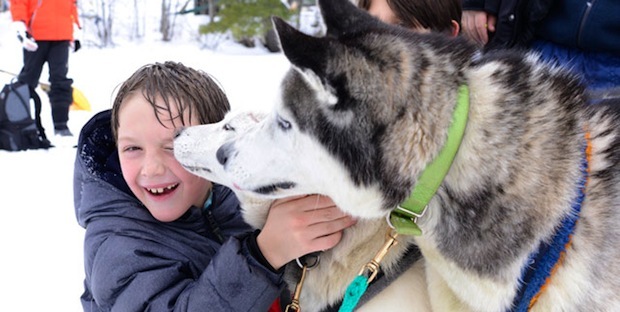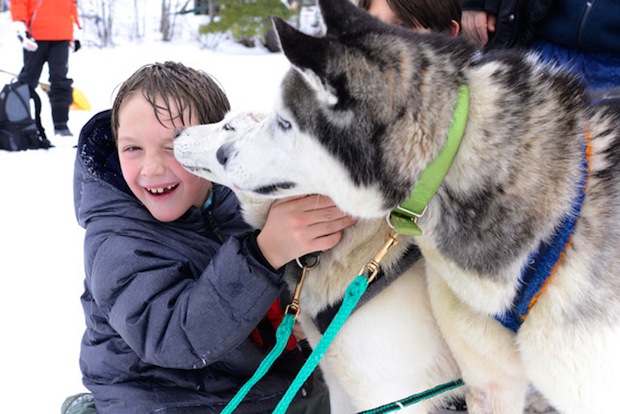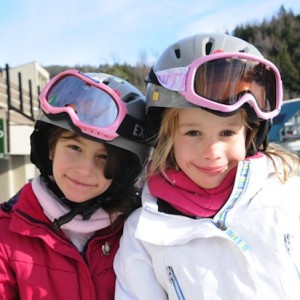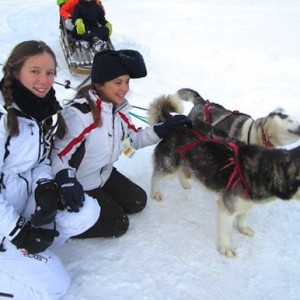This past vacation, some 140 students and 15 members of staff from the Lycée Français de New York participated in our first-ever school-organized, week-long ski trip, thanks to the vision and efforts of three teachers in particular, Sébastien Freland, Zohair Ghenania and Emmanuel Rouy. The experience was an extraordinary success, for which we are deeply grateful to its brilliant organizers and caring chaperones. A remarkable success because our students had a wonderful time enjoying each other’s company, but also because they learned a great deal about themselves in the process.
Even in the brief conversations about the trip which I have had with them, I have been struck by the enthusiasm with which they have wanted to recount their experiences of learning how to do something at Lake Placid which they had never done before, whether it be keeping their skis parallel or opening their eyes on the toboggan chute. They had an extremely fun time, certainly, but they were blissful at least in part because they also seemed to grow as young people. “I never thought I could do it, but I did” has been the recurrent theme.
I could report the same leitmotif in our students’ descriptions of any of the exciting trips on which they embark with our expert, intrepid faculty and do something that challenges them to push back the limits of what they had previously considered to be their own capabilities. Of course, tremendous personal growth also takes place in the classroom; in fact, such development is the distinguishing characteristic of our rigorous bilingual, bicultural program. It is spot-on too that our students grow enormously through special excursions to places of discovery in New York City and beyond. Yet what I wish to underline about the ski trip is slightly different, inasmuch as what happened on it was not academic, but was nonetheless highly meaningful to our students.
If this thought is on my mind this week, it is because I have just read an excellent article in the spring edition of the educational magazine Independent School, written by my colleague and the outgoing headmaster of Hotchkiss School, Malcolm McKenzie. This text offers outstanding insight into the concept and practice of what in school circles we would call “experiential learning”. Unfortunately, the article is not available on the internet or I would have gladly provided a link to it, but I would like to quote two especially insightful segments from the text today and will happily provide you with a copy of the full article should you so desire.
First of all, the definition of experiential learning which Mr. McKenzie offers, rooted in the understanding he gained of it several years ago as Head at the UWC Atlantic College in Wales, quite possibly the model for this approach for schools around the world: experiential learning “promotes learning through direct experience, often outside the classroom, at times not directly related to academic courses, frequently not graded, and sometimes not mediated through language or academic discourse and practice.”
And he goes on to describe the following three-part typology: “(1) experiential learning that takes place in the classroom, through the immediate apprehension of what is imaginatively shown rather than told: (2) experiential learning that occurs outside the classroom, but is related directly to the discourse of the classroom, such as field studies or focused trips; and (3) experiential learning that boils down to the work of doing something, such as growing food or learning a sport…which has a value in and of itself and is not academic. All three, but especially the last, can act as an open doorway to an expansive learning experience” (“Rescuing Education: The Rise of Experiential Learning”, Independent School, Spring 2013, p. 26).
May all three kinds of experiential learning, including the sort which occurred so unforgettably on Whiteface Mountain a fortnight ago, continue to flourish in our educational community!
About the Author :
Sean Lynch was Head of School at the Lycée Français de New York from 2011 to 2018, after having spent 15 years at another French bilingual school outside of Paris: the Lycée International de St. Germain-en-Laye. Holding both French and American nationalities, educated in France (Sciences Po Paris) and the United States (Yale), and as the proud husband of a French-American spouse and father of two French-American daughters, Sean Lynch has spent his entire professional and personal life at the junction between the languages, cultures and educational systems of France and the United States. In addition to being passionate about education, he loves everything related to the mountains, particularly the Parc National du Mercantour.




